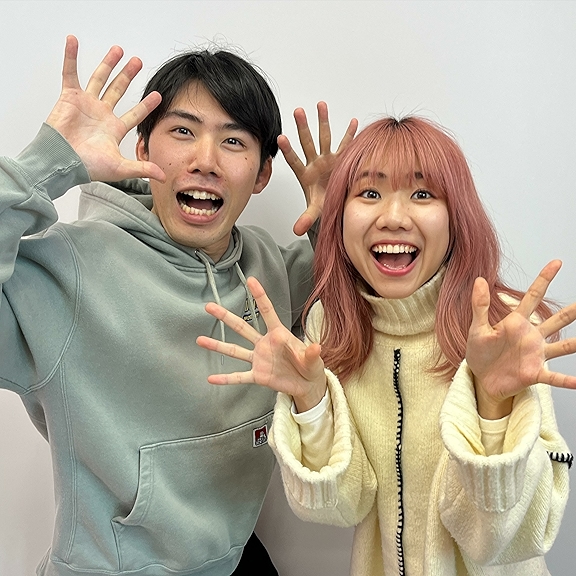
Episode 69 – Unstoppable Corporate Communicator with Bradley Akubuiro
Bradley Akubuiro’s parents raised him to have a deep and strong work ethic. His father came to the United States from Nigeria at the age of 17 and worked to put himself through school. As Bradley describes, both about his father as well as about many people in extremely impoverished parts of the world, such individuals develop a strong resilience and wonderful spirit. Bradley has led media relations and/or public affairs for Fortune 50 companies including Boeing as it returned the grounded 737 MAX to service and United Technologies through a series of mergers that resulted in the creation of Raytheon Technologies. He also served as an advisor to Rev. Jesse Jackson Sr. and to the Republic of Liberia post-civil war. Today Bradley is a partner at Bully Pulpit Interactive, an advisory firm founded by leaders of the Obama-Biden campaign. As you will see, Bradley is a wonderful and engaging storyteller. He weaves into his stories for us lessons about leadership and good corporate communications. His spirit is refreshing in our world today where we see so much controversy and unnecessary bickering. I look forward to your comments on this episode. About the Guest: Bradley is a partner at Bully Pulpit Interactive, an advisory firm founded by leaders of the Obama-Biden campaign. He focuses on corporate reputation, executive communications, and high visibility crisis management and media relations efforts, as well as equity, diversity, and inclusion matters for clients. Bradley has led media relations and/or public affairs for Fortune 50 companies including Boeing as it returned the grounded 737 MAX to service and United Technologies through a series of mergers that resulted in the creation of Raytheon Technologies and has also served as an advisor to Rev. Jesse Jackson Sr. and to the Republic of Liberia post-civil war. A nationally recognized expert in his field, Bradley has been quoted by outlets such as The Wall Street Journal, CNBC, and The Washington Post, and his columns have been featured in Business Insider, Forbes, and Inc. Magazine, where he is a regular contributor. Bradley is a graduate of the Medill School of Journalism at Northwestern University, where he currently sits on the Board of Advisers and serves as an adjunct member of the faculty. About the Host: Michael Hingson is a New York Times best-selling author, international lecturer, and Chief Vision Officer for accessiBe. Michael, blind since birth, survived the 9/11 attacks with the help of his guide dog Roselle. This story is the subject of his best-selling book, Thunder Dog. Michael gives over 100 presentations around the world each year speaking to influential groups such as Exxon Mobile, AT&T, Federal Express, Scripps College, Rutgers University, Children’s Hospital, and the American Red Cross just to name a few. He is Ambassador for the National Braille Literacy Campaign for the National Federation of the Blind and also serves as Ambassador for the American Humane Association’s 2012 Hero Dog Awards. https://michaelhingson.com https://www.facebook.com/michael.hingson.author.speaker/ https://twitter.com/mhingson https://www.youtube.com/user/mhingson https://www.linkedin.com/in/michaelhingson/ accessiBe Links https://accessibe.com/ https://www.youtube.com/c/accessiBe https://www.linkedin.com/company/accessibe/mycompany/ https://www.facebook.com/accessibe/ Thanks for listening! Thanks so much for listening to our podcast! If you enjoyed this episode and think that others could benefit from listening, please share it using the social media buttons on this page. Do you have some feedback or questions about this episode? Leave a comment in the section below! Subscribe to the podcast If you would like to get automatic updates of new podcast episodes, you can subscribe to the podcast on Apple Podcasts or Stitcher. You can also subscribe in your favorite podcast app. Leave us an Apple Podcasts review Ratings and reviews from our listeners are extremely valuable to us and greatly appreciated. They help our podcast rank higher on Apple Podcasts, which exposes our show to more awesome listeners like you. If you have a minute, please leave an honest review on Apple Podcasts. Transcription Notes
Michael Hingson 00:00 Access Cast and accessiBe Initiative presents Unstoppable Mindset. The podcast where inclusion, diversity and the unexpected meet. Hi, I'm Michael Hingson, Chief Vision Officer for accessiBe and the author of the number one New York Times bestselling book, Thunder dog, the story of a blind man, his guide dog and the triumph of trust. Thanks for joining me on my podcast as we explore our own blinding fears of inclusion unacceptance and our resistance to change. We will discover the idea that no matter the situation, or the people we encounter, our own fears, and prejudices often are our strongest barriers to moving forward. The unstoppable mindset podcast is sponsored by accessiBe, that's a c c e s s i capital B e. Visit www.accessibe.com to learn how you can make your website accessible for persons with disabilities. And to help make the internet fully inclusive by the year 2025. Glad you dropped by we're happy to meet you and to have you here with us. Michael Hingson 01:21 Well, hi, everybody. Thank you for joining us on unstoppable mindset today, we have Bradley Akubuiro with us. Bradley is a partner in bully pulpit International. He'll tell us about that. But he's been involved in a variety of things dealing with corporate communications, and has had a lot of adventures. He deals with diversity, equity and inclusion. But most of all, before we started this, he had one question for me. And that is, how much fun are we going to have on this podcast? Well, that really is up to Bradley. So Bradley has some fun. Bradley Akubuiro 01:56 Michael, thank you so much for having me is is going to be a ton of fun. I'm really excited. Thanks for having me Michael Hingson 02:01 on. Well, you're you're absolutely welcome. And we're glad that you're here had a chance to learn about you. And we've had a chance to chat some. So why don't we start as often and Lewis Carroll would say at the beginning, and maybe tell me about you growing up and those kinds of things. Bradley Akubuiro 02:18 Yeah, I'd be happy to do that. And, you know, I think it would be remiss if I didn't start off talking about my parents a little bit before I talked about myself. My dad grew up in the Biafran war in Nigeria, Civil War, Nigeria. And you know, while he was going through school, they were bombing schools, and it wasn't safe for adults to be out. And so, you know, he was the guy in his family at six years old, who was taking crops from their plantation. They grew up maybe about six hours outside of Lagos, Nigeria, and was moving, you know, some of these crops two miles away, to sell in the marketplace. And you know, at a very early age was learning responsibility, not just for himself, but for the family. Michael Hingson 03:02 Wow. Which is something that more people should do. So what what all did he do? Or how did all that work out? Bradley Akubuiro 03:09 Yeah. Well, you know, this was a really interesting time in Nigeria's History, where you had a lot of folks who were in this circumstance, and my dad was a really hard worker, his parents were hard workers before him, his father was a pastor. And so he had a certain level of discipline and support in his household. But, you know, he knew that he had this kind of onus on him. So grew up at a time then where not only do you have this responsibility, but a big family, brothers and sisters to take care of. He was the guy who was chosen later, you know, flash forward a few years, to come to the United States, to be able to find an opportunity here in this country, and to be able to always hopefully, give back to his family. Michael Hingson 03:59 So he came, and How old was he? When he came here? Bradley Akubuiro 04:03 When he got to the States, he was about 17. So came to New York City, not a lot going on there. And, you know, he had to put himself through Michael Hingson 04:15 school. Did he know anyone? Or Was anyone sponsoring him? Or how did all that work? He had a little Bradley Akubuiro 04:20 bit of family here, but he had to find his own way, get a full time job at a gas station, and work to figure out what this country was all about, but also how to be successful here. Michael Hingson 04:32 Where did he stay when he got here then Bradley Akubuiro 04:36 got a little apartment up on the kind of Washington Heights Harlem area of New York, little hole in the wall and, you know, continue to work to pay that off while he was trying to pay off school. So not easy, but at the same time, you know, a really, really great opportunity for him to kind of start fresh and create some opportunity for himself and family. Michael Hingson 04:58 So did he tell him at least With a little bit of money, how did all that work? It's funny, he Bradley Akubuiro 05:04 asked that question. He did come with some, but it wasn't a lot. Let's start off there. But you know, what's interesting about that is, you know, he put himself through undergrad, put himself through a master's program, you know, and was doing a PhD program over at University of Pennsylvania in Philadelphia. And at Penn, he blew through his entire life savings and one semester. And so, you know, was on a great path. You studying engineering, and, you know, a semester and he's like, Oh, what am I going to do ended up going across the street to Drexel, where they were able to bring him in and give him a scholarship, as long as he was one a TA, which he really enjoyed doing. And he was able to put himself through the PhD. Michael Hingson 05:50 Wow. So he started there as a freshman then Bradley Akubuiro 05:55 started, so he went to several different schools started in New York. Yep, sorry, started in New York at Hunter College, did a master's program at Clark Atlanta University in Atlanta, and then came up to do his PhD at Penn. And then went to Drexel, and went to Drexel. Michael Hingson 06:12 He moved around how, how come? What, what took him to Atlanta, for example? Do you know? Bradley Akubuiro 06:18 Yeah, well, it was the opportunity. You know, one of the things that he had learned and had been instilled in him growing up, which he's passed on to me is, you follow the opportunity where it's and as long as you're not afraid to take that risk and take a chance on yourself and your future that will ultimately more often than not pay off in the end. And so he followed scholarship dollars, he followed the programs that would have an opportunity for him. And he went exactly where it took, Michael Hingson 06:45 and what were his degrees in. Bradley Akubuiro 06:47 So his master's degree was in chemistry, his PhD was chemical engineering. Wow. Yeah. What did he What did he do with that? So well, you know, the world was his oyster, I suppose, in some ways, but you know, he ended up you know, going into a couple of different companies started with Calgon, carbon and Pittsburgh, and spent a number of years there and on later on to Lucent Technologies, and fiber optics. And so, you know, he's moved on to a number of different companies, engineering roles, eventually got his MBA and has been, you know, employed a number of different places and continued over his career to work in a number of different geographies as well, whether it's like going to Pittsburgh, New Jersey, Atlanta, Massachusetts. They're now living in Rochester, New York, which I've never lived in. But it's a very charming place. It's, yeah. Michael Hingson 07:44 It is. It is a nice place. I've been there many times. Yeah. And for customers and so on, it's a fun place to go. Well, he obviously learned in a lot of ways, some might say the hard way, but he learned to value what was going on with him, because it was the only way he was going to be successful. So nothing was handed to him at all, was Bradley Akubuiro 08:10 it? That's right. He had a very strong family foundation. And he definitely learned a lot from his parents and from his family, and they were very close. So I think that he would say that's what was handed to him, but he certainly didn't give any get any leg up. Michael Hingson 08:26 Right. Well, that's a good thing to have handed to you, I guess. Well, how did he meet somebody from Gary, Indiana, which is a whole different culture. Bradley Akubuiro 08:36 Well, this becomes a love story pretty quickly. That's an article. Michael Hingson 08:42 You can embellish how you want. Bradley Akubuiro 08:46 Oh, my parents actually met somewhat serendipitously. They were at two different schools. My mom was going to school in Alabama, Alabama a&m. My dad was going to school at the time and Clark, Atlanta and Atlanta. So about four hours apart, Huntsville, Atlanta. My mom's roommate was dating my dad's roommate. And so my mom agreed to come with her roommate to go and visit her boyfriend at the time. She happened to meet this strapping young Nigerian man in Atlanta, and they ended up hitting it off and as fate would have it, the other two their respective movements didn't make the distance but they had a budding romance that ended up lasting now at this point several decades. Michael Hingson 09:37 Wow. So they're, they're still with us. Bradley Akubuiro 09:41 They're both still with us Michael Hingson 09:42 both going strong. That is, that is really cool. So what do you think you learn from them? Bradley Akubuiro 09:48 I learned a number of things. You know, I learned first of all, and you heard my father's story, resilience. He has learned to take whatever is thrown at been thrown at him. Be able to not only take it in stride, which I think is good, but more importantly, to turn it around and channel it and to use it to his advantage, no matter what that might be. And he's instilled that in me and my two sisters, two sisters, ones, older ones younger. And that's, that's really been important. You know, when it comes to my two parents, the things that they value a ton are education, family. And when you think about the world around you, how are you leaving it in a better place than you found it. And if you can really focus on those handful of things, then you are going to have a very fulfilling and successful life. And that's how he measured success. I've taken that away from them. Michael Hingson 10:41 He doesn't get better than that. And if you can, if you can say that I want to make a difference. And that I hope I've made at least a little difference. It doesn't get better than that does it? Bradley Akubuiro 10:53 That's exactly right. So then Michael Hingson 10:55 you came along. And we won't we won't put any value judgment on that. Bradley Akubuiro 11:02 Thank you for that we Michael Hingson 11:03 could have for Yeah, exactly. But actually, before I go to that, have they been back to visit Nigeria at all? Bradley Akubuiro 11:11 Yeah, absolutely. And unfortunately, the most recent time that my parents took a trip back was the passing of my grandmother, a handful of years ago. And so that brought them back. But, you know, one of the things that I'm hoping to do, and I haven't done it yet, is just spend some real time out there. I've got plenty of family that's still there. So go in and spend a little time in Nigeria that's longer than a quick in and out trip. I spent some time and we've talked about this before Michael, but in West Africa, generally in Liberia. And that was a great experience. But there's not quite like going back to where it all began with your family. Michael Hingson 11:49 No, it's still not home. Right. Well, so you you came along. And so what was it like growing up in that household and going to high school and all that? Bradley Akubuiro 12:03 Well, there's a couple ways to answer that. Go ahead. Well, let's put it this way, I we have a very close family bond. And so you know, when you think about the folks who have finished your senses, who laugh at your jokes, because they think it's funny, and if you hadn't told that joke, first, they probably would have told that joke, the kind of family we have. It's a great, great dynamic. And so I was very fortunate to have grown up in that household with parents who truly, truly embraced that that side. You know, it was also a tough household. You know, my parents were very strict, my father, especially coming from this immigrant mindset, and this Nigerian culture, I mentioned the value of education. What I didn't mention quite, but might have been a little bit implied, and I'll say it more explicitly is anything less than an A was entirely unacceptable. There were a number of times where I found myself on the wrong side of that. And, you know, we grew up in different times, as my parents were trying to provide the best life they could for us, and a number of different urban settings. And, you know, one, one period of life for me was particularly studying in high school, where, you know, the school district of Springfield, Massachusetts at a time graduated about 54% of the students that went through that system. And so you're thinking about one in two kids who don't make it out of high school, much less make it the college, much less have a successful and fulfilling career in life. And my father, especially, but of course, both my parents want us to do absolutely everything in their power to ensure that those would not be our statistics that we would be my sisters, and I would be able to have every tool at our disposal to be successful. And they work hard at that, despite the circumstances. Michael Hingson 14:08 So how were they when I'm sure it happened? It was discovered that maybe you had some gifts, but there were some things that you weren't necessarily as strong as other things. How did that work out for you? Bradley Akubuiro 14:21 I want to be very clear, the list of things that I wasn't quite as good at, especially in those days, was long enough to stun you. So you know, it we we work through it together, right? I think one of the things that I admire most about my parents now that I maybe didn't appreciate enough growing up was just the amount that they leaned in, and we're willing to be hands on and helping with our education. And so my father would give us times tables when we were in elementary school and make sure that we worked through them. And if we didn't get them quite right, we would do them again, and we do them again, and we do them again. And And I remember a time when I was in the fifth grade where my father had me up until 1am, doing math problems. And, you know, I was thinking to myself, I cannot imagine doing this with my kids, when I was at that age, and then I swore at that time that I never would, I'll tell you what my blood now I swear that I definitely will maybe not till 1am, I think there's probably a more reasonable time. But to be able to invest that level of effort into making sure that your kid has everything they need to be successful. I just have I admire the heck out of it. Michael Hingson 15:36 I remember a couple of times, I think one when I was oh seven or eight, when we were living in California, and going back to visit relatives in Chicago, or driving somewhere. And my dad said to me, and my brother who was two years older, you guys have to learn the times tables. And we spent time driving, just going through the times tables. And it took me a little while. And a couple of times, I tried a shortcut that messed me up. But eventually I got it all figured out. And he said, when you say the times tables correctly, we'll give you 50 cents. And they did when I got the time two times tables, right? They did. And also, I was learning algebra from him. My dad was an electronics engineer. And so he really worked because I didn't have books in braille early on until I was in the fourth grade, I had to study with them to a large degree. So he taught me a lot more than the schools were teaching little kids as it were. So I learned algebra early, and I learned to do it in my head, and still do. And in high school, it got me in trouble in my freshman year, because my math teacher said, Now whenever you're doing things, you have to show your work. Well, you know, I kept trying to tell her that, for me, showing my work in Braille isn't going to do you any good. I can tell you what I do and how I do it. And she wouldn't accept that and she was going to fail me literally fail me in math. Until one day I wrote out, I think one of the problems and I think just in case she took it and went somewhere where she could find somebody to read Braille. I wrote it out correctly. But I got to see an algebra one because of that one thing. By the way, after that, I never got below an A in math. She was insistent that you had to show your work, and wasn't flexible enough to recognize that there are a lot of ways to show your work. Oh, Bradley Akubuiro 17:35 yeah. Well, that's part of the challenge, and not to make this an entire commentary on our education system. But there are so many different ways to your point to get to the right answer. And I don't think there's nearly enough flexibility in our system in many cases, except for those who really, truly tried to find it and create that environment for their students. But at a at a you know, broader look, there isn't nearly enough flexibility to appreciate that we're going to have many different ways to get these answers. Michael Hingson 18:04 I think that really good teachers, and there are a lot of good teachers. But I think the really good teachers make that leap and allow for flexibility in what they do. Because they recognize everyone learns differently. But the big issue is, can you learn and can you demonstrate that you learned? Bradley Akubuiro 18:24 Yeah, well, that's what we're all striving for. Michael Hingson 18:27 It is I was pretty blessed going through school, especially in high school, a lot of the times, I would stay after school and extra period to study in the library because again, not everything was available so that we actually had people who would read material to me or give me information that was written on boards that I didn't get any other way. And usually, the teachers would come in, we would set up days and they would come in and give me tests. And what was fun about that was we would go through the tests fairly quickly and spend most of the hour chatting and I got to know a number of my teachers that way and that was so valuable for me. One of them especially Dick herbal Shimer, I still know and you know, he's going to be what 85 I think it is this year, and he will be at five I think August 28. We still keep in touch, he came to our wedding. And he tells me that I'm getting to be closer in age to him and I point out that I'll never be as old as he is. And he tries to convince me that mathematically I'm getting closer and I say 13 years is still 13 years. Bradley Akubuiro 19:35 Hmm, yeah, don't let them don't let them try to get you. That's Michael Hingson 19:39 right. It's not gonna work. Bradley Akubuiro 19:42 was gonna ask you if you had a favorite teacher because I feel like teachers, if you put together this for many years have such an incredible impact on you and how you see yourself. Michael Hingson 19:52 I remember a lot of things from a number of my teachers and I can tell you the names of most all of my teachers. I remember in my freshman year English, our teacher was a Mr. Wilson has actually Woodrow Wilson was his name was an older gentleman. And one day we were sitting in class and he was just talking about philosophy. And he's talking about people's ethics. And he said, and I remember it that, you know, a good example is, if you need to borrow a quarter from somebody, be sure you pay that quarterback, where does that come in English? But nevertheless, those are the kinds of things that he said, and other teachers said various things, and they stick with you. Bradley Akubuiro 20:36 Yeah, no, it's so true. I mean, for me, my favorite teacher was Darlene Kaffee. She was my fourth grade teacher, taught all kinds of, I mean, touch everything you learned in fourth grade. But the most important thing for me was, she gave me confidence in my writing ability. You know, I had always enjoyed writing, but I never really thought of myself as someone who could potentially be a writer. And she was the first person who sat me down and said, Hey, look, you submitted this assignment. And it's really good. You could be a writer one day, and you know, she had me write poems, you had me write a number of different things that weren't class assignments. But there were things that she was like, Hey, if you want to do this, then you got to practice it. And I learned so much from her. But the most important thing I took away was that confidence in my ability to do these things. Michael Hingson 21:27 Yeah, yeah. And that's one of the most important things that good teachers can bring to us and not tear you down, because you don't necessarily do something exactly the way they do or want. But if you can demonstrate you learn that is so cool. Bradley Akubuiro 21:42 Yeah, it is. Yeah, it is. So, Michael Hingson 21:47 as I said, I keep in touch with declarable Shimer won his 80th birthday, I flew to Nebraska where they live and surprise him for his birthday, which was nice. That's awesome. Yeah, it was a lot of fun. And hopefully, we'll get back there one of these days soon. Meanwhile, I'll just give him a hard time on the phone. Bradley Akubuiro 22:08 Cathy's out here listening when I'm not going to surprise you don't listen to Michael. But if I show up, then I'll have a cake or something. Michael Hingson 22:17 Yeah, exactly. Well, so. So what was high school like for you? I think you said there were some things that happened in high school. Bradley Akubuiro 22:26 Yeah, high school was a I mean, when you think about formative man, this was a formative experience for me. So it was between my sophomore and junior year of high school, when one of my very best friends a guy who I consider to be like an older brother to me, was shot and killed in the drive by shooting. It was devastating. You know, I had a period over a few months, where not only was he killed, and I found out about it, 45 minutes after I'd left town to take my older sister, with my family to college and 22 hours away. So this wasn't something he did every night. And I likely had been with him had we not been on that trip. But you know, he unfortunately passed that night with a 45 caliber bullet hole in his heart. You know, my experience with school with with life that I mean, it really took a turn at that point. Because not only had I lost somebody who was very close to me, but the police didn't catch the guy who did it. In fact, they caught a guy who was a friend of ours that had absolutely nothing to do with it, and put him through absolute hell, only to find out that he wasn't responsible for this, any of us could have told you that right up front. You know, that was a terrible time. You know, a couple of months later, Michael, we had another one of our close friends who was shot and killed. And the girl who was with her at the time was shot in the leg trying to get away. And you know, and another month and a half after that another one of our good friends was you know, shot in his own driveway trying to get into his car and head to the grocery store. And it wasn't safe for us. And it was a really, really challenging time, just to exist, much less to try to focus on school and to focus on other things that are going on. How could you do that? When you didn't know if when you left in the morning, you were going to be able to make it home at night? Michael Hingson 24:32 Why was there so much crime? Well, that's Bradley Akubuiro 24:36 a million dollar question. You know, there's so many factors that go into it. And since then, I've spent a lot of time thinking more about the kind of, you know, macro factors, but it's a very specific on the ground situation at that time was there was a gang war between two rival gangs, street gangs in the city. And my engineer who I just referred to lived right in the heart of Eastern Avenue, which is the home of the app and Springfield became there. And across State Street was Sycamore and a number of different folks and rivalries had kind of established then. And so, you know, this was not that there's ever, you know, really sensical reasons that, you know, these things happen. But this was as nonsensical as it could be, you know, people who are killing each other and dying for reasons that if you were to ask those who survived now, why they would ever pull a trigger and situation like this, they probably couldn't really tell you or maybe even remember. Michael Hingson 25:38 So it wasn't race or anything like that. It was just the whole gang environment, mostly. Bradley Akubuiro 25:45 Yeah, that's right. And at the time, you know, you think about the economic factors that go into this. And I talked about this in the context of Chicago all the time, because that's where I live now. And the situation is just as salient here. But if you were to be on the west side of Chicago, Northwestern most neighborhood within the city limits of Austin, you would be in one of the poorest and one of the most dangerous zip codes in the industrialized world. If you were to go two miles over to Oak Park, one of the suburbs just outside of the city. It's one of the wealthiest in the region, and it is an amazing neighborhood, and the infrastructure across the board when it comes to the education system, and the amount of money per pupil. If you were to look at the crime statistics, if you were to look at the policing, if you were to look at any measure of quality of life, it is night and day different, but it's separated by a couple of streets. And that to me is unfathomable. Michael Hingson 26:52 It is crazy. Chris, you also have some really serious gangs back in Chicago. You know, the notorious was the cubs in the Sox, for example. Bradley Akubuiro 27:03 That's right. And you know what the competition? beaters? You don't get in the middle of those two sets of fans? Michael Hingson 27:09 Ah, no way. and never the twain shall meet, period. That's right. That's very many people who will say they're fans of both. Bradley Akubuiro 27:20 I don't think that's legal, actually. Ah, Michael Hingson 27:23 that would explain it. I'll tell you sports fans are really tough. I remember when I lived in Winthrop, mass right outside of Boston. And every year, I would on opening day, I'd be somewhere in Boston. And if the Red Sox lost immediately, basically everybody on the news and everyone else just said wait till next year. Yeah, they were done. It was no faith at all. It was amazing. And and I remember living back there when Steve Grogan was booed off out of the Patriots game one year and just I'll tell you, they're, they're amazing. Bradley Akubuiro 28:04 Well look at the dynasties they've gotten now. Unbelievable. Although, you know, I live with a die hard. Tom Brady fan. My fiance has been a Patriots fan since the beginning. And it's been a complete complete nightmare trying to figure out are we watching the Patriots? Are we are we watching the Buccaneers? And are we Tom Brady fans are Patriots fans? You know, it's a little bit of everything in that house. But I can't ever say that I'm not happy. I am a fully dedicated supporter of all things. Somebody in SNAP, otherwise, I'm in a Michael Hingson 28:39 lot of trouble. It is safer that way. Well, I have gained a lot of respect for Tom Brady, especially after he left the Patriots. And not because I disliked the Patriots, but because of all the scandals and the deflated footballs and all that sort of stuff. But he came back and he proved Hey, you know, it's not what you think at all. I really am good. And he continues to be good. Bradley Akubuiro 29:03 Yeah, it's 100%. Right. Well, and that to make this, you know, given a broader topic about Tom Brady, he gets plenty of press. But you know, the fact that he was able to say, All right, you have decided that I'm done in this sport. You've decided I'm too old to play this sport, but I have not run to the end of my capability. And in fact, I've got a lot more to offer this game. And he went and he took it with someone who would respect that and the Buccaneers and he won another championship. I mean, you can't you can't make this up. Michael Hingson 29:38 No, absolutely. You can't. And so we'll see what the Rams do this year. I liked the Rams. I grew up with the Rams, Chris, I'm really prejudiced when it comes to sports and probably a number of things because we've been blessed out here in California with great sports announcers. I mean, of course, Vin Scully, the best of all time in baseball, and I will argue that with anyone But then Dick Enberg did a lot of football and he did the rams and he did the angels. And of course we had Chick Hearn who did the Lakers, their descriptions and the way they did it, especially Vinnie just drew you in. And I've listened and listened to announcers all over the country and never got the kinds of pictures and announced me announcing and announcements that I got by listening to people in California, so I'm a little prejudiced that way. Bradley Akubuiro 30:31 Well, and you shouldn't be you absolutely should be. And I will say this, the power of storytelling that these folks that you just described are able to wield is phenomenal. And it's a skill that I actually wish more folks had and more different industries. Because if you can tell a strong compelling story, you can make it visual, you can bring people and like that the power it has to bring people together, and to motivate them to act is just unbelievable. Michael Hingson 31:01 Johnny most was a was a good announcer a pretty great announcer in basketball, but not really so much into the storytelling, but he had a personality that drew you in as well. Well, that counts for a lot. It does. I remember living back there when the Celts were playing the rockets for the championship. And the Celtics lost the first two games. And Johnny most was having a field day picking on the rockets and so on. But Moses Malone, Malone was criticizing the Celtics and said, You know, I can go get for high school people. And we could beat these guys. Wrong thing to say, because then the Celts came back and won the next for Johnny most really had a field day with that. That's what happens. Yeah, you don't open your mouth. Alright, so you went to Northwestern, that's a whole different environment. Bradley Akubuiro 31:59 Totally different environment. And, you know, I gotta tell you, I owe a ton to Northwestern. The exposure, it gave me two more global mindsets, people come to that university from all over the world, all kinds of different socioeconomic backgrounds, and looking to do so many different things, the academic rigor of the institution, and the resources that were at our disposal, were so incredible that it completely changed my experience. And frankly, the outlook I had for my own self and career. How so? Well, I'll put his way I went to school, for example, at the same time, as you know, students who had some similar backgrounds to the one I did, to being in school at the same time, as you know, Howard Buffett is the grandson of Warren Buffett, and you know, Bill polti, you know, whose grandson of, you know, the polti, you know, the namesake of Pulte Homes, and you know, literally billionaire families. And so you start to realize, if you can sit in a classroom with folks like this, and with all of the opportunities that they've had, the education, they've had private schools, things along those lines, and these are good friends, by the way, you know, when you can do that, and then realize, hey, you know what, I can keep up, I can do this. And then you know, you are receiving, you know, grades professors who support you opportunities, in terms of internships, all of these things, and realms that you never even considered possible even just a year or two earlier. It truly broadens your horizons in ways that I don't even think I could have appreciated before I was into it. Michael Hingson 33:44 Wow. And that makes a lot of sense, though. We're all we're all people. And we all have our own gifts. And the fact that you could compete is probably not necessarily the best word because it implies that there are things that we don't need to have, but you are all able to work together and that you can all succeed. That's as good as it gets. Bradley Akubuiro 34:05 That's exactly right. And I do find compared to a lot of places, Northwestern have a very collaborative culture. I found that, you know, from faculty, the staff to students, everybody was very interested in seeing everybody succeed. And you know, we believed truthfully, that all of us could there's enough room on the boat for all of us. Michael Hingson 34:29 What was your major journalism? No surprise being Northwestern? Bradley Akubuiro 34:36 Yeah, I was I was a big, big, big proponent of the journalism school and actually still remain affiliated. I'm on the faculty over there and sit on the board of the journalism school and have loved every second




















